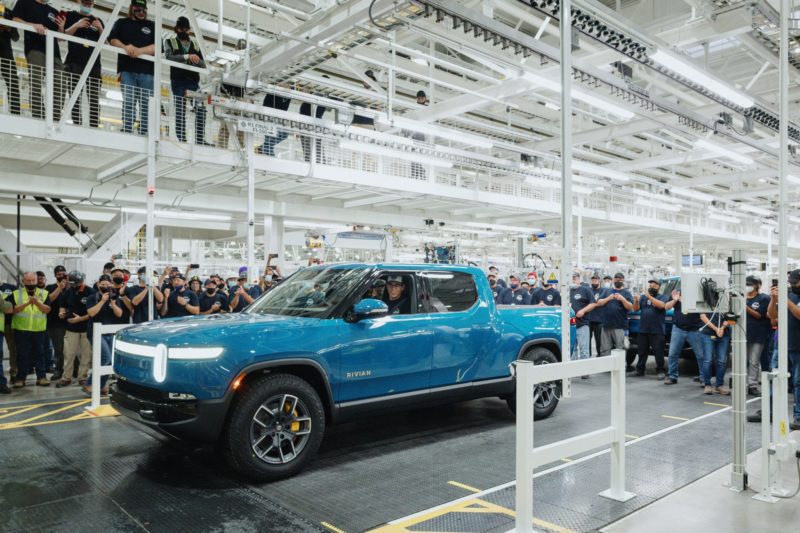American EV newcomer Rivian has managed to avoid the bloodshed of its peers during the first quarter, with stronger than expected revenue, a narrower loss than predicted, and a confirmation of its full-year 2023 production targets.
EV start-ups have been publishing their first quarter earnings this week, and it has been lacklustre news across the board.
However, Rivian appears to have avoided the worst of it, reporting revenue of $US661 million. This is against analyst estimates of $US660.3 million, down only slightly on the $US663 million reported in the previous quarter, and over 6-times the $US95 million reported in the same quarter a year earlier.
Rivian’s stronger than expected quarterly revenue was bolstered by the delivery of 7,946 of its electric utes and SUVs, and production of 9,395 units during the first quarter.
“Rivian’s … result was significant in that it helped demonstrate the company’s ability to help control its own destiny at a time of increasing pressure on the global EV market,” Morgan Stanley analysts wrote in a note, adding that mere survival equals success in the current market.
Net loss for the quarter contracted to $US1,349 million compared to a loss of $US1,593 million in the same quarter a year earlier.
Most importantly, however – and bucking the trend of other EV start-ups like Lucid Group and Fisker Inc – Rivian was able to maintain its full-year production target of 50,000.
Further highlighting the company’s improving position, Rivian’s R1T electric truck/ute and R1S electric large SUV became the only vehicles of their type to achieve the highest safety rating of Top Safety Pick+ from IIHS so far this year.
Rivian’s decision to vertically integrate its network architecture and associated electronics, full vehicle software stack, and propulsion platform has also been noted as a strength for the company’s long-term benefit.
However, with an expected loss of $US4.3 billion for the year (narrowing on the $US5.2 billion loss recorded in 2022), the benefits for investors and company alike will be measured in years.
Joshua S. Hill is a Melbourne-based journalist who has been writing about climate change, clean technology, and electric vehicles for over 15 years. He has been reporting on electric vehicles and clean technologies for Renew Economy and The Driven since 2012. His preferred mode of transport is his feet.

